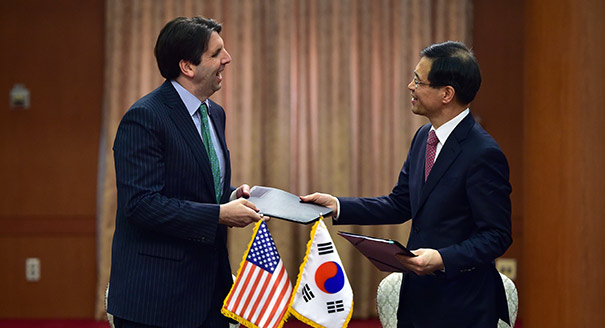Source: CSIS
On June 15, the United States and South Korea signed a successor agreement to their 1974 civil nuclear cooperation accord. Updating the existing agreement took over four years of challenging negotiations complicated by Seoul’s demands for the right to enrich uranium and reprocess (or pyroprocess) spent nuclear fuel to which Washington objected. What began as nearly irreconcilable political differences resulted in win-win compromises that strike a balance between maintaining the U.S.' core nonproliferation policy and reflecting South Korea’s industrial maturity and desire to advance its civil nuclear program while establishing pathways for an unprecedented level of cooperation between the two allies. The new agreement reflects the interdependence of the American and South Korean nuclear industries as an equal partnership—from a unilateral obligation to reciprocal consent rights and obligations—as well as mature, strong bilateral relationship...This report was originally published by CSIS




